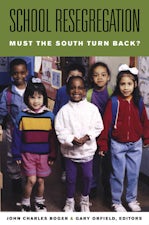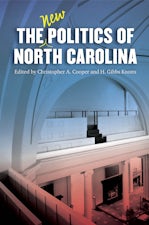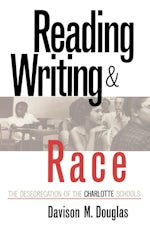The End of Consensus
Diversity, Neighborhoods, and the Politics of Public School Assignments
By Toby L. Parcel, Andrew J. Taylor
192 pp., 6.125 x 9.25, 1 map, 13 tables, appends., notes, bibl., index
-
Paperback ISBN: 978-1-4696-2254-5
Published: April 2015 -
E-book EPUB ISBN: 978-1-4696-2255-2
Published: April 2015 -
E-book PDF ISBN: 979-8-8908-4431-6
Published: April 2015
Buy this Book
- Paperback $32.50
- E-Book $19.99
For Professors:
Free E-Exam Copies
Drawing on media coverage, in-depth interviews with community leaders, and responses from focus groups, Parcel and Taylor's innovative work combines insights from these sources with findings from a survey of 1,700 county residents. Using a broad range of materials and methods, the authors have produced the definitive story of politics and change in public school assignments in Wake County while demonstrating the importance of these dynamics to cities across the country.
About the Authors
Toby L. Parcel is professor of sociology at North Carolina State University.
For more information about Toby L. Parcel, visit
the
Author
Page.
Andrew J. Taylor is professor of political science at North Carolina State University.
For more information about Andrew J. Taylor, visit
the
Author
Page.
Reviews
“A rich historical context of policies and politics that shaped the public's reception of repeated reassignments and the use of year-round schools.”--Social Forces
"The End of Consensus both sets the historical record straight regarding the status of public education in Wake County and illuminates the social, political, and educational processes that are at play in Raleigh and, more generally, in contemporary public education across the United States. It stands as a striking case study of the underlying social and political dynamics of school reform that communities across the nation are facing."--Roslyn Arlin Mickelson, University of North Carolina at Charlotte
"This significant volume presents a history of the various alignments and realignments of political leadership, as well as how seemingly unconnected policies can interact to shape citizens' perspectives."--Elizabeth DeBray, University of Georgia




